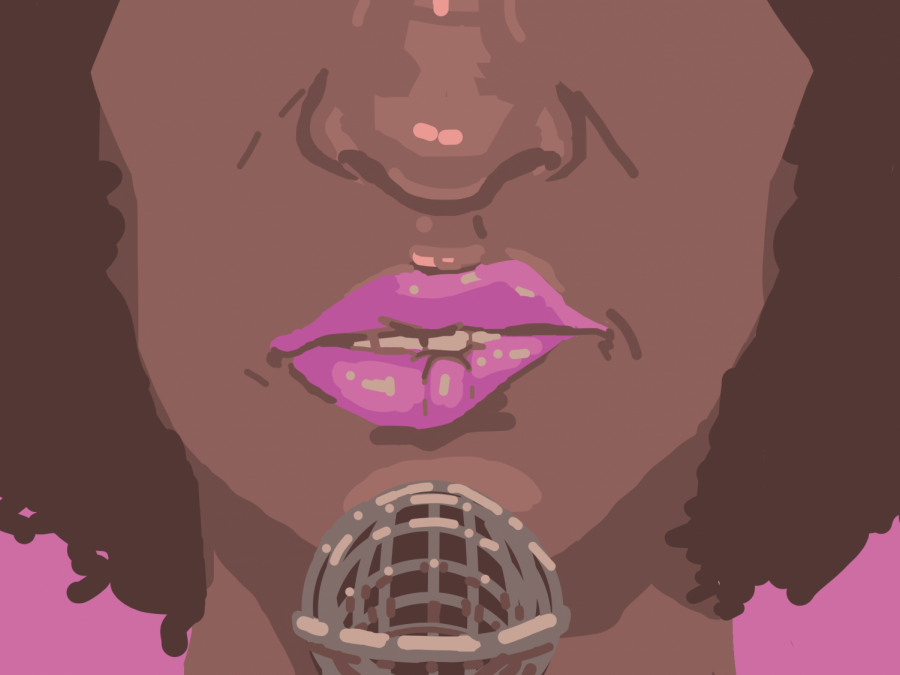An Industry of Abuse and Guilt
Parasocial relationships in the taxing entertainment industry have gone too far, as fans start to neglect their idols’ mental health and attempt to guilt-trip them from taking much-needed breaks.
March 17, 2021
For the past few months, I’ve been a big fan of LOONA, a K-pop group composed of 12 girls, including 23-year-old HaSeul, who debuted with the group in 2016. However, on January 7, 2020, HaSeul went on a hiatus from the group after being diagnosed with anxiety, and has not yet returned. At first, fans’ support and love for her was immense. But as the months went by, the well wishes were replaced with something very different. Gone were the prayers of “I’m rooting for her to feel better,” and in came the era of “I miss her!!!!! When is she gonna come back?? It’s too sad to listen to LOONA without her :(.”
Any time a member of LOONA mentions her name or simply the fact that there are still 12 members, the comments are full of fans clutching at straws that this is a hint that finally, finally, they will see the return of their fave. But with HaSeul sitting out of the most recent album drop, tensions continue to build.
Anxiety is extremely prevalent in K-pop from Twice’s Mina to BTS’s Suga, so much so that it’s garnered the nickname of “Celebrity Panic Disorder” in Korea. From a young age, the aspiring idol must take dancing and singing lessons in order to be at the top of their game. Next, they audition to become a trainee, and compete with many other young people for a spot in the newest group. But even if they make it as a trainee, they might have to practice for years—all with the possibility of the group disbanding before its debut if something goes wrong. All of this is to say that HaSeul, someone who gave up her dreams of being an opera singer to throw herself into the draining world of K-pop, would not stop working for any reason other than a serious one.
Blockberry Creative (BBC), the company that runs LOONA, has stayed completely silent regarding HaSeul’s anxiety and potential return. One fan noted this as a point of contention, claiming, “People love to defend BBC, but [there’s] no excuse … [there are] zero updates on HaSeul.” Of course, none of us need to know extremely personal information about a woman we never even met. The parasocial relationship that fans have built up with the members of LOONA has convoluted genuine concern into a twisted sense of entitlement. HaSeul needs to be allowed to have this time off to feel better in order to prevent her issues from becoming potentially even more serious in the future. There is already so much pressure on her to return due to her aging, the soaring popularity of LOONA, and the need for her to establish herself in the entertainment industry. Having her own fans guilt-trip, manipulate, and ignore her happiness for their own will do far more harm than good.
Parasocial relationships—in which fans are separated enough from their idols to have no remorse when they harass them, yet close enough to them to feel like they have the right to do so—extend beyond the K-Pop industry. The most obvious examples are with Youtubers and streamers, whose natural-seeming and friendly natures often make many fans feel “entitled” to their friendship, even though there’s a clear power imbalance between content creators and consumers. Some examples that stand out are when Dream’s (a Minecraft YouTuber who recently skyrocketed to immense fame) fans used a photo of his kitchen to track down his house on Zillow, and when Daniel Howell’s (a popular YouTuber) fanbase repeatedly guilt-tripped him from taking a break from YouTube. Celebrities are made to feel guilty for not constantly being able to maintain their public persona, needing privacy, or taking breaks. The entertainment industry already takes a hard toll on its members. According to the University of Sydney, 80% of actors are users of either legal or illegal drugs and 40% find it hard to let go after emotionally taxing roles. Why must we act like we deserve for them to work themselves to the bone for us, only to turn around and get upset when they leave the industry for good?
It’s true that members of the entertainment industry choose to live a life of fame—however, that doesn’t give any fan the right to invade their privacy or demand a constant stream of content from them. It can be sad to go months, or even years without seeing an album or music video drop from your favorite content creator. But we have to remember that entertainers are only human, just like the rest of us. If HaSeul ever does return to LOONA, we can only hope she does it for herself, and isn’t forcing herself to return to a toxic environment.


